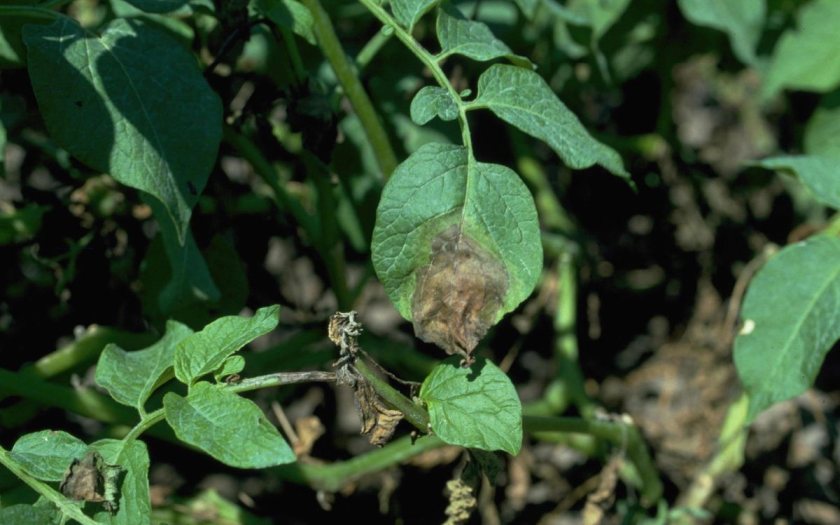
New research has identified one of the best genes to confer durable resistance to late blight in potato, the cause of the Irish potato famine in the 1840s.
The crop disease continues to reduce potato yields today and can cause devastating losses for farmers.
Resistance genes in plants provide protection by allowing the crop to perceive pathogenic microorganisms and upon perception, activate defence against them.
However, single resistance genes often act against a limited range of pathogen races and can be overcome by new variants.
The challenge is to find new resistance genes that provide protection against the widest range of pathogens and their variants, buying time in an ongoing evolutionary arms race.
To address this challenge, Professor Jonathan Jones, of the Sainsbury Laboratory, explored the diversity of resistance genes in a wide range of wild plants related to potato.
He found Solanum americanum, the ancestor of the widespread UK wild plant Solanum nigrum (black nightshade), to be an good source of new resistance genes against late blight.
In recent work, Professor Jones and his co-workers report resistance gene Rpi-amr1 and its many variants, which enables the plant to detect the same virulence proteins of late blight, affording protection from disease.
Late blight strains carry two related virulence proteins that are both recognised by most of the Rpi-amr1 variants, important because pathogens overcome resistance by losing or substantially modifying their virulence proteins through evolution.
The chances of losing or modifying several virulence proteins at the same time is lower: Rpi-amr1 confers resistance against all of the 19 blight strains tested.
The Rpi-amr1 resistance gene is being combined with two other resistance genes, Rpi-amr3 and Rpi-vnt1, in the commercial potato Maris Piper: the resulting potato lines are immune to a very wide diversity of blight races.
Professor Jones said “It took a long time and there were many false leads and confusing data to make sense of, but this Rpi-amr1 gene now looks like one of the best resistance genes in our armoury against late blight.
"By combining Rpi-amr1 with two other resistance genes, I think it can make a durably blight-resistant potato."
Kamil Witek, one of the lead researchers, added: “Solanum americanum is a fantastic and versatile germplasm and we are very pleased with cloning Rpi-amr1.
"It’s a very strong gene providing resistance against all races of P. infestans we tested so far."
The research was funded by the Biotechnology and Biological Science Research Council and the Gatsby Charitable Foundation.
